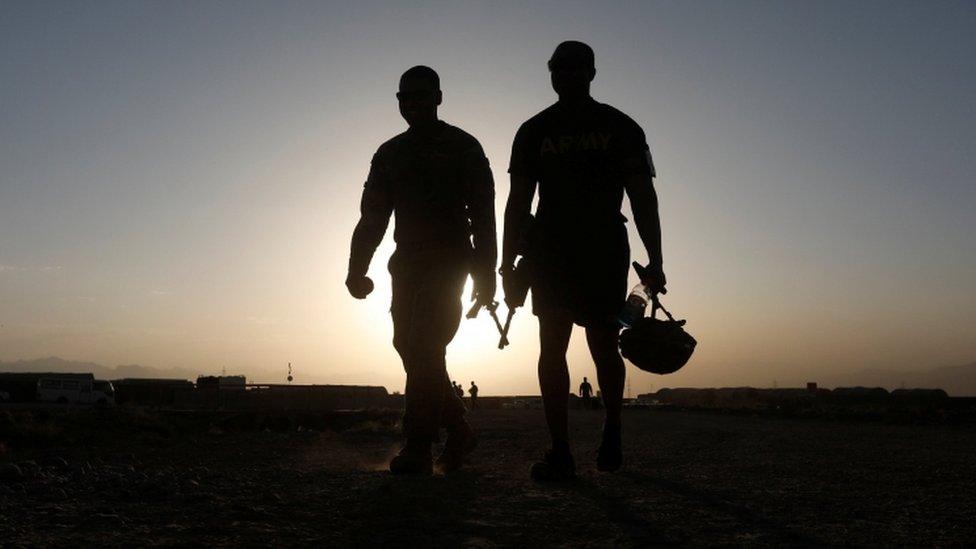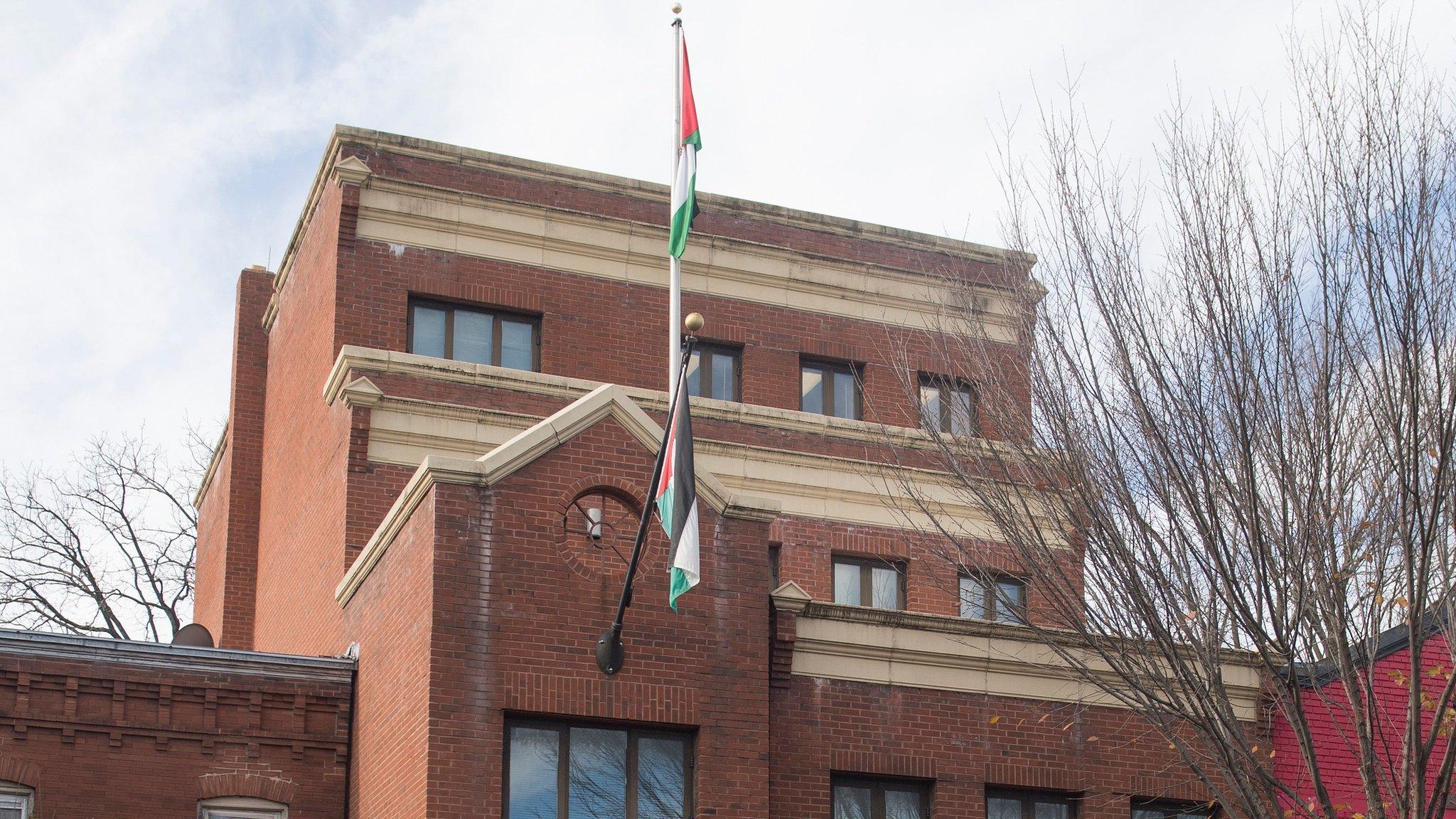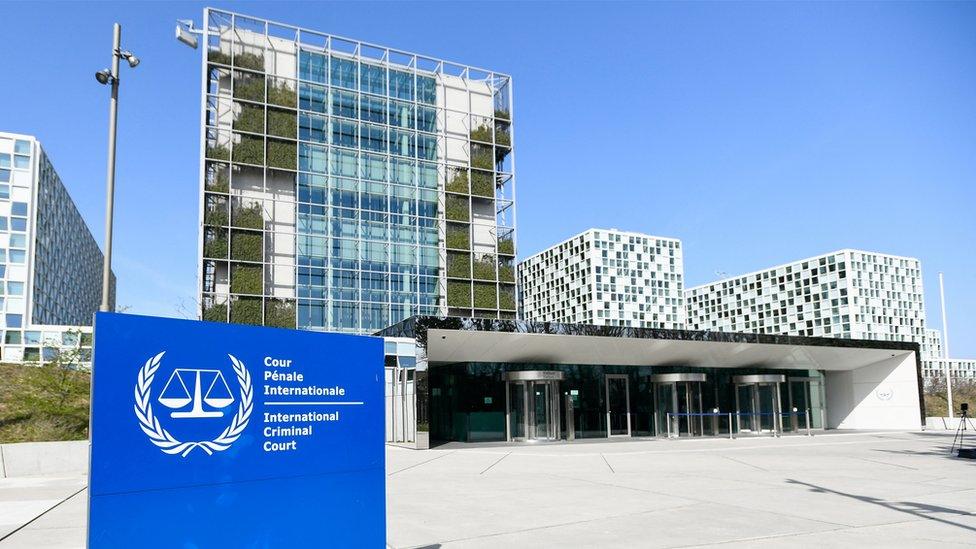ICC 'undeterred' by US sanctions threat
- Published
Bolton: "The ICC is dead to us"
The International Criminal Court (ICC) has said it will continue "undeterred" in the face of threats by the US.
The court angered the US by revealing it wanted to investigate American servicemen over alleged detainee abuse in Afghanistan.
On Monday, National Security Adviser John Bolton called the court "illegitimate" and vowed to do everything "to protect our citizens".
He warned of possible sanctions if the ICC went ahead with the investigation.
But the ICC shrugged off the threats in a statement, defending itself as an "instrument to ensure accountability for crimes that shock the conscience of humanity".
France has also issued a statement in support of the court, with foreign ministry spokeswoman Agnes von der Muhll saying it "must be able to act and exercise its prerogatives without hindrance".
The US, which has been critical of the ICC since it was established, is among dozens of nations not to have joined the court.
What is the ICC?
The court investigates and brings to justice people responsible for genocide, crimes against humanity, and war crimes, intervening when national authorities cannot or will not prosecute.
The ICC was established by a UN treaty in 2002, and has been ratified by 123 countries, including the UK.
However several countries, including China, India, and Russia, have refused to join.
Some African countries have called for withdrawal from the court over perceived unfair treatment of Africans.
Why is John Bolton opposed to it?
Mr Bolton, who has been particularly vocal in his opposition to the court, attacked two areas of its work in a speech on Monday.
The first was ICC prosecutor Fatou Bensouda's request last year for a full investigation into alleged war crimes in Afghanistan, which would include any committed by US military and intelligence officials.
A 2016 report from the ICC said there was a reasonable basis to believe the US military had committed torture, external at secret detention sites in Afghanistan operated by the CIA, and that the Afghan government and the Taliban had committed war crimes.

US personnel in Afghanistan could be subjected to ICC investigations
Mr Bolton said neither Afghanistan nor any government signatory to the ICC's statute had requested an investigation.
However, ICC prosecutors also have the ability to take independent action, although any prosecutions must be approved by a panel of judges.
The second area Mr Bolton addressed was the Palestinian move to bring US ally Israel before the ICC over allegations of human rights abuses in Gaza and the occupied West Bank - a move dismissed by Israel as politicised.
Mr Bolton said: "We will not co-operate with the ICC. We will provide no assistance to the ICC. We will not join the ICC. We will let the ICC die on its own. After all, for all intents and purposes, the ICC is already dead to us."
What did the ICC say in response?
The ICC released a statement following Mr Bolton's speech, stressing it was an "independent and impartial judicial institution" and that it did not intervene unless it was absolutely essential.

The court in The Hague was founded in 2002 by a treaty known as the Rome Statute
"The court's jurisdiction is subject to the primary jurisdiction of states themselves to investigate and prosecute allegations of those crimes and bring justice to the affected communities. It is only when the states concerned fail to do so at all or genuinely that the ICC will exercise jurisdiction." the statement said.
"The ICC, as a court of law, will continue to do its work undeterred, in accordance with those principles and the overarching idea of the rule of law."
What steps could the US take?
ICC judges and prosecutors would be barred from entering the US and their funds in the US would be targeted.
"We will prosecute them in the US criminal system. We will do the same for any company or state that assists an ICC investigation of Americans," Mr Bolton said.
More "binding, bilateral agreements" would be signed to stop countries submitting US citizens to the court's jurisdiction.
- Published11 September 2018

- Published10 September 2018

- Published7 February
